Current Projects
Relevant Events
NYSDEC How to Get Certified Course
March 3, 2026 : NYSDEC How to Get Certified Course
Ellicottville, NY
Mid Atlantic Grain Conference
March 15 - March 16, 2026
EPA Approves Federal Registration for Over-the-Top Dicamba Application
Katelyn Miller, Field Crops and Forage Specialist
Southwest New York Dairy, Livestock and Field Crops Program

The EPA has approved federal registration of three over-the-top dicamba products in soybeans. While dicamba has remained on the market, this is approval specifically for OTT use, marking the strongest environmental protections for dicamba products.
Drones in Agriculture: Exploring Opportunities
Katelyn Miller, Field Crops and Forage Specialist
Southwest New York Dairy, Livestock and Field Crops Program
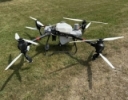
A follow up article to "Drones in Agriculture" in October 2024, this article dives into the opportunities to integrate drones into spray programs.
The Tillage Toolbelt: Nutrient Cycling
The decision to till or no-till is not a one size fits all approach. This article series aims to clear up some of the confusion about the ways that tillage (or a lack thereof) impacts our fields, and how the challenges you face could determine whether it's the right move for you.
Combine Adjustments to Minimize Corn Harvest Losses

Volunteer corn infestations popping up in your crop rotation can reduce crop yield and require additional herbicide considerations. Now is the time to prepare for harvest by calibrating your equipment to minimize harvest losses.
Management Considerations for Immature and Frosted Corn Silage
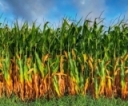
With our average frost date fast approaching, it's time to consider how we are going to handle corn that is either immature or experiences a frost. Check out this article for tips on how to manage this forage.
Guidance for Manure Applications on Prevented Planting Acres
Many acres across New York were unable to be planted to corn, soybeans or new perennial forages due to extended wet conditions during this spring's planting season, resulting in several crop insurance claims. Check out this guidance for manure applications on prevented planting acreage for farms under CAFO permit and/or following a CNMP.
Pricing Corn Silage - Preliminary Fall 2025 Estimates

You might think it's too early to talk about corn silage harvest, but this season's challenges have many re-evaluating plans. Preliminary estimates from John Hanchar, NWNYDLFC, put the corn silage price at approximately $63 per ton. These early estimates can support informed decision-making as cropping and forage strategies shift.
Ag Safety and Health Springtime Preparations

Spring is one of the busiest times of the year on a farm. Even if things are busy, keep health and safety to the forefront of what you do.
USDA Expediting Direct Economic Assistance to Agricultural Producers

U.S. Secretary of Agriculture Brooke Rollins announced that the U.S. Department of Agriculture (USDA) is issuing up to $10 billion directly to agricultural producers through the Emergency Commodity Assistance Program (ECAP) for the 2024 crop year. Eligible producers must report 2024 crop year planted and prevented planted acres to FSA on an FSA-578, Report of Acreage form. Contact your local FSA office for more information.
Winter and wet weather manure spreading reminders
NYS Department of Environmental Conservation is reminding farmers to be mindful of conditions that are high risk for runoff.
Demystifying Ag Value Assessments: A Summary for Landowners and Farmer Renters
Katelyn Walley, Business Management Specialist and Team Leader
Southwest New York Dairy, Livestock and Field Crops Program
Farming comes with plenty of challenges, and property taxes is a pretty big one of them. In New York, the Agricultural Assessment Program helps lower property taxes for land used for farming. Every year, if you own or rent farmland, this program can save you money. Here's what you need to know to take advantage of this benefit AND connect with rented landowners to ensure they're receiving this benefit.
Win a Grain Rescue Tube and Training for Your Local Fire Department
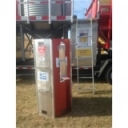
Win a grain rescue tube and training for your fire department! Nationwide Insurance once again is teaming up with the National Education Center for Agricultural Safety (NECAS), Peosta, Iowa, to award emergency first responders with grain rescue tubes and hands-on rescue training to help save lives.
Does Cropping System Matter for Biologicals?

Biologicals are a hot topic in agriculture. This article highlights the uncertainties we face with their use, especially considering our different cropping systems.
Corn Stunt: A New Disease and A New Insect Vector for New York State

Corn stunt is a new corn disease that has been identified in four New York Counties this year. Symptoms present similarly to other stresses in corn, including drought, soil compaction, and phosphorous deficiency.
It's Time - End of the Year Tax Planning (Part One)
Katelyn Walley, Business Management Specialist and Team Leader
Southwest New York Dairy, Livestock and Field Crops Program

The sun is still shining, crops are still growing, and your mind is probably the farthest it possibly can be from tax planning. But - Fall is a great time to focus on tax planning and managing your tax liabilities. By creating a tax strategy BEFORE January 1st, you'll avoid those (always fun) December 31st equipment purchases and (less fun) stress and headaches.
Integrated Pest Management (IPM) for Mosquitoes on Dairy, Livestock, and Horse F
From Ken Wise - NYSIPM, Cornell University. Recent outbreaks of equine encephalitis highlight the urgent need for effective mosquito control measures on farms. This disease is primarily transmitted by mosquitoes, with the black-tailed mosquito, Culiseta melanura, serving as a significant vector.
Want to learn more about Value Added Dairy Production? Start here!
Katelyn Walley, Business Management Specialist and Team Leader
Southwest New York Dairy, Livestock and Field Crops Program
Are you a dairy producer interested in on-farm dairy processing? Looking to diversify your operation with direct to consumer sales? Interested in value-added production? Tired of scouring the internet to find a whole lot of information that you're not sure actually applies? Here's a great place to start!!!
Managing Flood Damaged Crops
With the recent flood damage, crops were unfortunately damaged. This article highlights how to manage crops that were damaged by floods.
Assessing Forage Crop Damage from Recent Weather Events
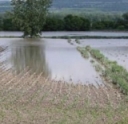
Flooding has had a devastating impact in the region this past weekend. Regardless of whether a few acres or several fields were affected, it is helpful to get out and scout your crops to understand the impacts. Cornell Cooperative Extension reminds farms affected by recent storm damage to document and share any impacts the weather may have had on their home or business.
Understanding Tar Spot
Katelyn Miller, Field Crops and Forage Specialist
Southwest New York Dairy, Livestock and Field Crops Program

Tar spot, a foliar disease of corn, has made its way into New York State's crop production. Learn more about the disease, what it can be confused with, and how to manage it on your farm.
Preparing for Hot Weather by Steve Hadcock
As I write this article (5/20/2024), we are experiencing some unusually warm weather. While I hope that some cooler and more seasonable days will return, we can expect many hot, humid days this summer. Now is a good time to start thinking about how you will protect yourself, your family members, and your employees from heat-related illnesses.
Thank You, Camila! An Update from our Team Leader, Katelyn Walley
Katelyn Walley, Business Management Specialist and Team Leader
Southwest New York Dairy, Livestock and Field Crops Program

Our team has some sad news to share. Our outstanding Dairy Management Specialist, Camila Lage, is leaving Cornell Cooperative Extension as of May 1st, 2024.
A Review of the Endangered Species Act and Pesticides: An Example
Katelyn Miller, Field Crops and Forage Specialist
Southwest New York Dairy, Livestock and Field Crops Program

On March 20th, 2024, the Endangered Species Act Committee of the Weed Science Society of America (WSSA)'s hosted an informative webinar on how pesticide labels may change to protect endangered species. This article provides a quick summary of action items that were presented. You can also watch the recording on NYSIPM's YouTube channel.
2024 Updates on Dicamba Tolerant Soybeans for NY Producers
On February 06, 2024, the U.S. district court in Arizona vacated 2020 registrations of three dicamba containing products (XtendiMax, Engenia and Tavium) for over-the-top (OTT) applications in dicamba-tolerant (Xtend and XtendFlex) soybean. In response to the U.S. district court ruling, the EPA issued an Existing Stock Order on February 14, 2024, that allows limited sale, distribution, and use of these dicamba OTT products that were already in the possession of growers, distributors or in the channels of trade and outside the control of pesticide companies as of February 06, 2024. Learn what this means for you as a soybean grower.
What the Ag Census Has to Say About Farm Labor
Katelyn Walley, Business Management Specialist and Team Leader
Southwest New York Dairy, Livestock and Field Crops Program
The Ag Census counts Hired Farm Labor and collects data on the number of farms with hired labor, the total number of hired farm workers, and the total payroll paid for hired labor. Separately, the number of farms with migrant or contract labor and the total number of migrant workers is also collected. Farms can have both migrant and hired labor, and migrant labor is not included in the total payroll paid nor number of hired farm workers. Many farms also rely on unpaid farm labor that is typically performed by family members, and the ag census collects that data as well (although, it's not included here).
Introduction to Worker Protection Standard
Katelyn Miller, Field Crops and Forage Specialist
Southwest New York Dairy, Livestock and Field Crops Program

The Worker Protection Standard regulation was originally issued in 1992 to reduce the risk of injury and illness resulting from pesticide exposures. It covers pesticides used in the production of agricultural plants on farms, forests, nurseries, and greenhouses. Determine if you fall under the Worker Protection Standard.
Considerations for N-fixing biologicals in corn production

In recent years, products containing nitrogen (N) fixing bacteria have been marketed for their ability to supply N to a corn crop. Biologicals are generally understood to provide N throughout the growing season as microbes are active but the main question is: How do we determine if a biological (1) improves yield; and/or (2) reduces the need for fertilizer N?
Reporting Winter Storm Damage - It's Important!
Katelyn Walley, Business Management Specialist and Team Leader
Southwest New York Dairy, Livestock and Field Crops Program

Winter's here, and with that comes high winds, heavy snow loads, power outages, and damages that negatively impact your farm business. Katelyn Walley shares the importance of documenting damages and reporting them here, along with key contact information.
Preparing and Storing Farm Equipment for Winter

Winter in the Northeast is notorious for extreme temperature changes and varying moisture levels. This article summarizes best practices from equipment manufacturers to keep your investments protected from harsh winter conditions.
Custom/Third Party Manure Applicator Registration - Update & Resources

NYSDEC now requires commercial manure applicators that apply manure on CAFO farms to register with the department and complete annual reporting. While applicators need to register by January 18, 2024 to be in compliance, it is recommended towait until after January 1, 2024 to do so. Kirsten Workman with PRO-DAIRY has provided comments about this new requirement and resources for registration.
2023 NY Pesticide Reporting Reminder Notice and Electronic Reporting Requirement

If you currently hold an active certification allowing you to make commercial pesticide applications in calendar year 2023, you are required by law to submit an acceptable annual report of your pesticide applications (or lack thereof) no later than FEBRUARY 1, 2024. To ensure you submit an acceptable report to the DEC, check out this notice sharing reporting changes and common reporting issues.
Fall Lime Application
Katelyn Miller, Field Crops and Forage Specialist
Southwest New York Dairy, Livestock and Field Crops Program

Spring activities become overwhelming quick, so think about making lime applications now. Fall lime applications allow time for lime to react in the soil, and makes for one less task in the spring.
Confined Spaces: Hazards of Manure Gases

While new manure handling systems are more efficient and reduce manual labor, farmers and ranchers must understand the hazards associated with working in and around confined spaces where manure is stored. Keep yourself and employees safe this season by understanding the risk of manure gases!
Field Nitrogen Balances for Corn Silage

A field nutrient balance is an end-of-season evaluation tool defined as the difference between nutrients accessible for crop uptake (nutrient supply), and nutrients removed with forage harvest (nutrient uptake). Learn how to derive field nitrogen balances for corn silage in order to better manage your nitrogen use.
Corn Ear Rots and Mycotoxins

There are many pathogens that cause ear rots. Identify which ones are associated with mycotoxin contamination!
Evaluating Your Pasture System
Katelyn Miller, Field Crops and Forage Specialist
Southwest New York Dairy, Livestock and Field Crops Program

As we reach the end of grazing season, it's a great time to evaluate your pastures production this past year. Did it produce what you expected? This article plus the handout should serve as a guide to help look at your pasture's productivity.
Soybean Cyst Nematode in NY
Katelyn Miller, Field Crops and Forage Specialist
Southwest New York Dairy, Livestock and Field Crops Program

Soybean Cyst Nematode is the #1 yield reducing pest of soybeans. It cannot be eradicated entirely, so read on to learn more about the impact of this pest and management strategies.
When Milk Prices Are Lousy - Should You Dream Big?
Katelyn Walley, Business Management Specialist and Team Leader
Southwest New York Dairy, Livestock and Field Crops Program
Milk price fluctuations dramatically affect dairy farm business planning, and diversification could be a solution. Here, Katelyn Walley-Stoll outlines five diversification options, including value-added dairy, alternative livestock, alternative crops, agritourism, and renewable energy. The importance of risk assessment and financial planning in pursuing these opportunities is emphasized.
It's Soil Sampling Season
Katelyn Miller, Field Crops and Forage Specialist
Southwest New York Dairy, Livestock and Field Crops Program

Soil testing is the building block of any fertilizer management program, allowing you to evaluate your pH, organic matter, and various macronutrient and micronutrient levels in your soil. Fall is a popular time of year to take soil samples, so let's discuss how to get your soil from the field and into the lab for analysis.
Bunk Silo Safety
Katelyn Miller, Field Crops and Forage Specialist
Southwest New York Dairy, Livestock and Field Crops Program

As corn silage begins to enter bunks for the year, safety should be a top priority. Here are some tips to keep you and your employees safe in your bunk silo this season.
Perennial Weed Control in Grass Forages

One of the most common weed management questions we often get relates to perennial weed control in grass hay and pasture. Many people want to know when the most optimal time is to control perennial weeds and what herbicides are the most effective. The short answer - late summer and fall with systemic herbicides but there is more to the story.
Poultry Carcass Breakdown Fact Sheet
Amy Barkley, Team Leader & Livestock Specialist
Southwest New York Dairy, Livestock and Field Crops Program

Breaking down a whole processed chicken into its individual parts can be a way to increase the revenue from your chicken and offer customers more choices. This fact sheet takes your step-by-step through the process of taking a whole chicken into whole wings, boneless skinless breast, thighs, and drums. For a PDF or print copy of this fact sheet, reach out to Amy Barkley at amb544@cornell or 716-640-0844.
Custom CAFO Manure Applicators Required to Register with DEC
Affected custom applicators have until January 18th, 2024 to register with DEC on their website and then submit annual report activities. Learn more from CALS PRO-DAIRY here.
Strategies for Hay Crops 2023
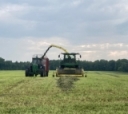
The 2023 season has been a roller coaster for producing dairy quality hay crops across NYS. While yields varied for both first and second cutting, for many the combined total yield is lower than desired and presents concerns about adequate inventories. With potential challenges to inventories, it is worth thinking about strategies for the remainder of the season.
Farmers: What's in your weed seedbank?

Are you interested in learning more about the diversity of your weed seedbank? The Weed Seedbank Project is looking to recruit 50 farms throughout the state to analyze their weed seedbanks and provide tailored management recommendations. To get involved, leave a message at 315-787-2432 or email bjb342@cornell.edu. The deadline to apply is July 1st, so don't hesitate - apply today! For more information, click here.
Herbicide-Resistant Weed Management Strategies
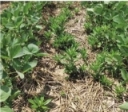
Herbicide-resistant weeds are not new, with the first resistance in the Northeast found in 1977. The list of resistant weeds grows, making the control and management of them an important aspect of farming operations.
13 Safety Tips for Anhydrous Ammonia

As the recent wet weather has caused us to halt field activities, it's a good time to think about the risks involved with utilizing anhydrous ammonia in our fertilizer programs, and how to protect ourselves from them.
Using Adjuvants in Your Pesticide Program
Katelyn Miller, Field Crops and Forage Specialist
Southwest New York Dairy, Livestock and Field Crops Program

As planting season approaches, it's a great time to review how adjuvants can improve pesticide efficacy. Read on to learn more about various types of adjuvants and important considerations for selecting one to use in your farms pesticide program.
Consideration for Alfalfa-Grass Mixtures
Katelyn Miller, Field Crops and Forage Specialist
Southwest New York Dairy, Livestock and Field Crops Program

85% of the alfalfa acreage in the Northeast is planted as a mix with grass. Learn some considerations of utilizing these mixes on your farm and grass species selection.
FarmOps: Setting Your Farm Financial Resolutions Resources
Katelyn Walley, Business Management Specialist and Team Leader
Southwest New York Dairy, Livestock and Field Crops Program
While not as fun as caring for baby animals, playing in the dirt, and growing food - record keeping is an important tool for farm success. Start the new year off right by setting your farm financial resolutions. In this two part seminar, you'll learn how to set up a record keeping system, identify your financial goals, and be ready to hit the ground running in 2023. Register to receive a fillable record keeping plan and a quarterly farm financial check list.
Opportunity for Silage Corn Growers: On-Farm Biodiversity Experiment

Cornell graduate student researcher is seeking New York partner farms to test how planting native flowers near silage corn fields affects biodiversity on the farm. We are also interested in how flower planting date affects biodiversity. This single-year experiment will run from May to September 2023. Participating farms will each receive $500.
Some Farm Business Management Reminders by Katelyn Walley-Stoll
Katelyn Walley, Business Management Specialist and Team Leader
Southwest New York Dairy, Livestock and Field Crops Program
Some reminders about the ST-125, NYS Ag Value Assessment, Separate Checking Accounts, Revisiting Your Farm Business Plan, Updating Your Balance Sheet, and Supporting Your County's Cooperative Extension Association.
Winter forage management means business strategy

While we all get anxious during the winter months and feel as if there must be something we can do out in our fields, preparing a good strategy for the upcoming growing season may just be the most proactive thing to do.
8 Things to Think About - Farm Diversification and Enterprise Analysis
Katelyn Walley, Business Management Specialist and Team Leader
Southwest New York Dairy, Livestock and Field Crops Program
When conversations about farm diversification come up, I always bring it back to our shared experiences…as dreamers, as doers, as innovators, as people who say "Well, that could have gone better". Specifically, to take this hot topic and break it down, here are my 8 considerations that (I think) are universal in conversations about farm diversification.
New York On-Farm Research Partnership Value of Manure Project

Manure has all seventeen essential plant nutrients and can increase yield beyond what can be obtained with fertilizer only. In this project with the Nutrient Management Spear Program, the nitrogen fertilizer replacement value (how much N can we credit to manure?) is evaluated and yield differences as a result of manure application. Read on to learn the requirements for participation and trial setup.
3 New Year's Resolutions for Farm Financial Management
Katelyn Walley, Business Management Specialist and Team Leader
Southwest New York Dairy, Livestock and Field Crops Program

The beginning of the new year offers us a chance to reset, start with a blank slate, and have the best of intentions for the months ahead. While many of us might make New Year's Resolutions around our health, farm production, and others - I can bet that you've never set some for your farm's financial management!
SWNY Agribusiness Directories
Katelyn Walley, Business Management Specialist and Team Leader
Southwest New York Dairy, Livestock and Field Crops Program
Find contact information for service providers in SWNY including Veterinarians, Feed Mills, Lime/Fertilizer Suppliers, Sheep Shearers, Meat Processing Facilities, and Tax Preparers.
A Real Life Reminder for Farm Safety Around Animals!
Katelyn Walley, Business Management Specialist and Team Leader
Southwest New York Dairy, Livestock and Field Crops Program
When working with any type of livestock or equipment, it's key to consider safety to keep yourself, your farm family, employees, and animals safe. On average from year to year, one in every four farm accidents involve animals. Below are some farm safety reminders for working with animals on the farm.
Reflecting on Tar Spot in 2022

While tar spot was first found in Pennsylvania in late 2020, its spread was limited in the commonwealth until recently. This year (2022), tar spot was found across the majority of southern PA and in western PA into the Lake Erie region. We want to emphasize that there were no reports of yield loss due to tar spot in the areas affected. Read on to learn how the pathogen survives and spreads along with possible management strategies if the disease has been identified in your area.
Snow Loads on Barn Roofs from Cornell CALS PRO-DAIRY
Removal of significant snow accumulations off of a barn roof is best performed in a systematic way to reduce the risk of injury or death to both barn occupants and those working on the roof. Removing roof snow without a proper approach may cause more damage than if left alone in some cases by creating an unbalanced and/or concentrated roof loads.
Herbicide Resistance Survey

With the recent documentation of evolved herbicide resistance in New York, Cornell is looking to get a better feel for the current "state of the state" with respect to herbicide performance and failure. If you think you have any herbicide resistant weeds, take this survey to help Cornell weed scientists plan future research and extension projects.
Protecting Pastures from Drought by Fay Benson
Drought disrupts grazing operations more than confinement operations since confinement operations plan to have stored feed for their animals so when drought weather hits they have time to react and make alternative plans. It doesn't affect the livestock. As pasture soil dries, grass growth slows, graziers try to keep their rotation going hoping for rain. When it doesn't come they have to change to stored feed which can have a negative effect on livestock production.
Some Reminders from Your Friendly, Neighborhood, Extension Agent!
Katelyn Walley, Business Management Specialist and Team Leader
Southwest New York Dairy, Livestock and Field Crops Program
Renting Land, Income Tax Planning, NYS Farm Directory, DAP Funding, Monkeypox, Supporting your local CCE Association, and Organic Certification grants.
Inflation's Effect on Consumer Purchases and Dairy Farm Expansions
Katelyn Walley, Business Management Specialist and Team Leader
Southwest New York Dairy, Livestock and Field Crops Program
June's Milk Production was up by just 0.3% from 2021.New York saw a decrease of 7,000 head from 2021 to 2022 and a just a 1% increase in milk production per cow. Typically, we see a chain reaction when milk prices are high. Prices go up —> farms add cows —> milk production goes up —> prices go down. However, as we're seeing currently, year over year milk production increases of less than 1-2% can indicate strong or rising milk prices.
Myth Busting 8 Common Beliefs About Cover Crops

7 Business Planning Considerations for On-Farm Dairy Processing
Katelyn Walley, Business Management Specialist and Team Leader
Southwest New York Dairy, Livestock and Field Crops Program

With the current volatile dairy market, rising input costs, and continued challenges in commercial dairy production, dairy farm owners are looking for new ways to improve their profitability. If you're a dairy farmer interested in diversifying or vertically integrating your business, one option could be on-farm processing of raw milk into value-added goods and bottled fluid milk for sale. While this might seem like a fun, lucrative, and sustainable new venture at first glance, it's important to consider how you'll need to adjust and address your farm's business plan to accommodate for this change.
Navigating, Valuing, and Negotiating Land Leases
Katelyn Walley, Business Management Specialist and Team Leader
Southwest New York Dairy, Livestock and Field Crops Program

4.21.22 Navigating, Valuing, and Negotiating Land Leases Materials
Katelyn Walley, Business Management Specialist and Team Leader
Southwest New York Dairy, Livestock and Field Crops Program
Let's Talk About Making a Profit
Katelyn Walley, Business Management Specialist and Team Leader
Southwest New York Dairy, Livestock and Field Crops Program
Profit. It seems that the term "profit" stirs different types of emotion into farmers' hearts whenever I try to casually bring it up in kitchen table conversations. For some, profit has always been a goal - will always be a goal - and is tracked from year-to-year, or even month-to-month. For others, profit is a lofty idea that, in theory, the farm strives for - as long as they don't have to pay in any income taxes at the end of the year. Yet, for some, profit is a "bad word" and definitely not the right reason to be in the business of farming.
6 Reasons Why You Might Want to Drag Your Feet to the Carbon Credit Market
Katelyn Walley, Business Management Specialist and Team Leader
Southwest New York Dairy, Livestock and Field Crops Program

For some, selling carbon credits can be a helpful and efficient way to boost/diversify farm income. Especially since most of the practices that are used to sequester carbon also provide added soil health and additional benefits to the farmstead. Now, here are some key considerations and questions that you should consider before jumping right in.
Calculating Your Cost of Production - Start with Knowing Your Numbers!
Katelyn Walley, Business Management Specialist and Team Leader
Southwest New York Dairy, Livestock and Field Crops Program

Cost of Production is a financial analysis tool for farms of all shapes and sizes to use to improve their decision making capacity and operate their farm business profitably. Cost of production is calculated by adding the costs associated with a certain farm enterprise (or production area), and dividing that by the total units of production over a designated time frame (usually a year).
National Young Farmers Coalition announces Young Farmers Grant Program
The National Young Farmers Coalition is partnering with Chipotle to offer $5,000 grants to 50 young farmers and ranchers to support them in building careers in agriculture.
Assess Your Farm Business Health within a Farm Financial Peer Learning Circles
Katelyn Walley, Business Management Specialist and Team Leader
Southwest New York Dairy, Livestock and Field Crops Program
Cornell Small Farms Program (CSFP) and Cornell Cooperative Extension are teaming up with diversified farmers like you to analyze your farm's finances and have productive, honest discussions about the state of your business and opportunities for improving your financial outcomes.
Thinking about a solar lease? Here are 5 things you should consider.
Katelyn Walley, Business Management Specialist and Team Leader
Southwest New York Dairy, Livestock and Field Crops Program

Rural landowners across the Southwest New York Region, and New York State in general, have been receiving invitations from solar companies to lease their land for utility scale solar arrays. While this has been around for several years, the general trend of increasing renewable energy sources has spurred lots of conversations about the potential benefits, pitfalls, and logistics of hosting solar arrays on your property.
Dairy Margin Coverage - Foundational Risk Management for your Milk Production
Katelyn Walley, Business Management Specialist and Team Leader
Southwest New York Dairy, Livestock and Field Crops Program
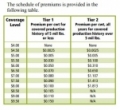
For dairy farmers, milk production and profitability can be a tricky thing to plan for. It's even trickier when you take into consideration all of the different places where systems can break down, prices can drop, and life (or a more visual term synonymous with manure) happens. Knowing your options for farm risk management, especially dairy price risk management, is important to make sound decisions to help protect your farm financially.
Feeding Food Waste Fact Sheet Series
Dairy Environmental Systems has published new fact
sheets on the topics of feeding dairy cattle food waste - wet brewers and wet
distillers grains, and anaerobic digestion biogas utilization options with a
combined heat and power (CHP) technology comparison.
It's DMC Time! More information about 2022's Dairy Margin Coverage program.
Katelyn Walley, Business Management Specialist and Team Leader
Southwest New York Dairy, Livestock and Field Crops Program
You can now enroll and change your coverage options for your farm's DMC coverage, December 13, 2021 - February 18, 2022. There have been a few changes to this year's program, summarized below. Visit the Dairy Margin Coverage Program website for more information.
NYS Covid-19 Pandemic Small Business Recovery Grant Program
Katelyn Walley, Business Management Specialist and Team Leader
Southwest New York Dairy, Livestock and Field Crops Program
The New York State COVID-19 Pandemic Small Business Recovery Grant Program was created to provide flexible grant assistance to currently viable small businesses, micro-businesses and for-profit independent arts and cultural organizations in the State of New York who have experienced economic hardship due to the COVID-19 pandemic.
State Ag Commissioner Encourages Industry to Apply for Grant Program
Grants of Up to $50,000 are Available for Eligible Small Businesses With Revenues of Up to $2.5 Million and Experiencing Financial Hardship Due to COVID-19
What do you want to see for the future of New York State's food system by 2050?
We invite you to participate in a statewide Farmer Survey to prioritize investments for the NYS food and farming system as we look towards building an equitable, resilient, profitable, and healthy future.
Support SWNYDLFC by Supporting your local CCE Association
Katelyn Walley, Business Management Specialist and Team Leader
Southwest New York Dairy, Livestock and Field Crops Program
Support Southwest New York Dairy, Livestock & Field Crops Program by Supporting your local Cornell Cooperative Extension Association! It's that time of year where your local CCE Association might be seeking sign ups for enrollments, subscriptions, donations, and programs. We'd like to take a moment and highlight how our relationship with our local associations in Allegany, Cattaraugus, Chautauqua, Erie, and Steuben Counties is vital to our program.
Please Don't Use Ivermectin in People
Katelyn Walley, Business Management Specialist and Team Leader
Southwest New York Dairy, Livestock and Field Crops Program
COVID doesn't seem to be going away, and while there are things we can do to prevent the spread (vaccinations, social distancing, mask wearing, and not licking shopping carts), self-medicating with Ivermectin isn't one of them. The American Association of Bovine Practitioners recently released a safety alert warning folks against using Ivermectin in people which could cause serious health effects and death.
New York HERO Act in Effect NOW
Employers are Required to Activate Plans and Prevention Measures. Call Katelyn Walley-Stoll at 716-640-0522 for more information.
Air Fryers - For More than just Chicken Tendies
Katelyn Walley, Business Management Specialist and Team Leader
Southwest New York Dairy, Livestock and Field Crops Program

At our Corn Silage Pre-Harvest Meetings in Springville and Arkport this week, speaker Joe Lawrence talked about the importance of monitoring your corn crop's dry matter for optimal harvest and storage. One way to measure dry matter of growing/harvested crops, and even at feed out or a whole TMR, is with the latest trendy kitchen appliance - an air fryer.
Cornell Cooperative Extension Farmer School Tax Series
Katelyn Walley, Business Management Specialist and Team Leader
Southwest New York Dairy, Livestock and Field Crops Program
Cornell Cooperative Extension's Farmer Tax School: An educational series from Cornell Cooperative Extension Farm Business Management Specialists offering courses designed to inform and empower farm managers to better understand their tax obligations, management strategies, and improve farm profitability. This consists of four courses offered October 2021 - January 2022. For more information, visit tinyurl.com/ccetaxschool.
Dairy Market Watch - July 2021
Katelyn Walley, Business Management Specialist and Team Leader
Southwest New York Dairy, Livestock and Field Crops Program
Dairy Market Watch is an educational newsletter to keep producers informed of changing market factors affecting the dairy industry. Dairy Market Watch is published on the last Tuesday of every month, funded in part by Cornell Pro-Dairy, and is compiled by Katelyn Walley-Stoll, Business Management Specialist with the Southwest New York Dairy, Livestock & Field Crops Program.
New York HERO Act in Effect - Policy Template Available
Katelyn Walley, Business Management Specialist and Team Leader
Southwest New York Dairy, Livestock and Field Crops Program
Earlier this year the New York Health and Essential Rights Act was signed into law. This requires all businesses to and Airborne Infectious Disease Exposure Prevention Plan that addresses workplace health and safety precautions. Department of Labor recently released industry templates from which you can build your plan, including one that is specifically for ag. While the plans must be drafted and adopted they are not required to be implemented. Connect with Katelyn Walley-Stoll if you'd like more information.
NY Corn and Soybean Yield Contest Application Available
The NY Corn and Soybean Growers Association has released the 2021 entry form and rules for the Corn and Soybean Yield Contests on their webpage. Completed forms must be submitted to Mike Stanyard of the NWNYDLFC team by August 30th.
Have you seen Gypsy Moth Larvae in Your Fields?

From Mike Stanyard on the Northwest New York Dairy, Livestock, and Field Crops Team: Gypsy moth larvae are serious pests of deciduous trees and even conifers.
Seeking Dairy Farms to Join Dairy Grazing Cohort
Katelyn Walley, Business Management Specialist and Team Leader
Southwest New York Dairy, Livestock and Field Crops Program

The Northeast Dairy Business Innovation Center has introduced a new initiative to
support new or existing dairy farms that would like to increase grazing
practices within their operation. As part of this initiative, Fay Benson with
Cornell Cooperative Extension is partnering with Pennsylvania Association of
Sustainable Agriculture (PASA) to expand well-managed grazing lands in New York
and Pennsylvania and support regional farmers in their grazing transition.
What Are You Culturing?

Tim Terry, Dairy Farm Strategic Planning Specialist with Cornell PRO-DAIRY, shares strategies for identifying and creating a positive environment for your farm, family, and employees.
What can the Dairy Advancement Program do for You?
Katelyn Walley, Business Management Specialist and Team Leader
Southwest New York Dairy, Livestock and Field Crops Program
Dairy producers in New York State, with a preference for small to mid-sized farms, are eligible for funding to address business needs to stay competitive and sustainable in today's agricultural environment! The Dairy Advancement Program provides financial support to NY dairy producers that can be used to engage professionals for financial analysis and to create business plans, design new or remodeled farm facilities, and develop farmstead environmental plans, including design of practices identified in the farm comprehensive nutrient management plan. For more information, contact Katelyn Walley-Stoll in the SWNY region at 716-640-0522 or visit prodairy.cals.cornell.edu/dairy-advancement.
New Report Summarizes NYS Meat Processor Needs and Perspectives
Amy Barkley, Team Leader & Livestock Specialist
Southwest New York Dairy, Livestock and Field Crops Program

In Fall 2020, CCE interviewed all NYS meat processing facilities to gain an understanding of businesses' interest in expanding or upgrading to a higher level of inspection, barriers to sustainability and growth, and what types of support they needed. Read the full report here.
Spring Weed Control in Grass Hay and Pastures by Dwight Lingenfelter - PSU
Joshua Putman, Field Crops and Forage Specialist
Southwest New York Dairy, Livestock and Field Crops Program

Over the past few weeks, we have received calls in the SWNY region pertaining to weed control options in grass hay and pastures. Spring weed control timing is critical and there are several options to consider. Remember, once weeds are in the "seed setting" stage, a herbicide application is no longer effective. Full article can be found here.
Helpful Coronavirus Vaccination Updates for Farm Managers and Owners
Katelyn Walley, Business Management Specialist and Team Leader
Southwest New York Dairy, Livestock and Field Crops Program
Getting a vaccine and following CDC advice will be the best protection from COVID-19 for you, your family, your community, and your farm employees. While this is a highly personal decision, the more people on your farm that are fully vaccinated the lower your risk of experience a COVID outbreak. As a farm manager, you have the potential to influence employee attitudes about the vaccine. To help you lead these conversations and take steps towards this important prevention measure, we've got several resources available.
Dairy Market Watch - April 2021
Katelyn Walley, Business Management Specialist and Team Leader
Southwest New York Dairy, Livestock and Field Crops Program
Dairy Market Watch is an educational newsletter to keep producers informed of changing market factors affecting the dairy industry. Dairy Market Watch is published on the last Tuesday of every month, funded in part by Cornell Pro-Dairy, and is compiled by Katelyn Walley-Stoll, Farm Business Management Specialist with the Southwest New York Dairy, Livestock & Field Crops Program.
Checking Insect Traps in the Snow - What we have so far?
Joshua Putman, Field Crops and Forage Specialist
Southwest New York Dairy, Livestock and Field Crops Program

As of this week, we have our first moth captures in SWNY. Two black cutworm moths were captured in Steuben County and no moths were collected from Cattaraugus County. As temperatures increase and the spring progresses, be on the lookout for these yield robbing pests.
Farm Business Foundations - Quick, Useful, and Free!
Katelyn Walley, Business Management Specialist and Team Leader
Southwest New York Dairy, Livestock and Field Crops Program
Farms of all shapes and sizes can benefit from helpful tune-ups. Equipment maintenance, herd health checks, and milk house deep cleaning are all things we do to keep things running smoothly. But - when was the last time you checked in on your Farm Business Management know how? Katelyn Walley-Stoll is going to offer a series of webinars from 7pm - 8pm on Thursdays in May for beginning and transitioning farms, or for those that just need a tune-up.
The Pigweed Roadshow is on!
Joshua Putman, Field Crops and Forage Specialist
Southwest New York Dairy, Livestock and Field Crops Program
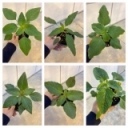
Interested in learning about problematic weeds in the state? We are looking for locations willing to host us as we will be joined by Dr. Lynn Sosnoskie and her weeds, to learn about different identification characteristics among the pigweed species here in NY. Can you correctly identify all 6 weeds in this photo?
Research Finds Multiple Herbicide-Resistant Marestail is Present in New York
Joshua Putman, Field Crops and Forage Specialist
Southwest New York Dairy, Livestock and Field Crops Program

Thirty populations of marestail (horseweed) were collected in the fall of 2020 and are being screened for resistance to commonly used herbicides. Of the 30 collected, 27 appear to be resistant to glyphosate (Roundup) and 28 populations appear to be resistant to cloransulam herbicide, an ALS-inhibitor. This indicates that we have multiple-resistance in NY. It is also suspected that 4 of these 30 samples may be resistant to paraquat (Gramoxone) herbicide. The screening efforts will continue to evaluate the effect of products like 2,4-D and dicamba, Liberty, and PPO-inhibiting herbicides like Reflex and Sharpen.
Dairy Market Watch - March 2021
Katelyn Walley, Business Management Specialist and Team Leader
Southwest New York Dairy, Livestock and Field Crops Program
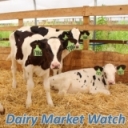
Dairy Market Watch is an educational newsletter to keep producers informed of changing market factors affecting the dairy industry. Dairy Market Watch is published on the last Tuesday of every month, funded in part by Cornell Pro-Dairy, and is compiled by Katelyn Walley-Stoll, Farm Business Management Specialist with the Southwest New York Dairy, Livestock & Field Crops Program.
Weed Control in Wheat and Nitrogen Carrier Issues
Joshua Putman, Field Crops and Forage Specialist
Southwest New York Dairy, Livestock and Field Crops Program

Populations of winter annual weeds will become more prevalent in late March/early April and can compete with wheat and barley and slow the rate of crop development potentially reducing yield. If winter annual weeds like common chickweed, henbit, purple deadnettle, marestail/horseweed, and others emerge with the small grain and are left unchecked, the potential impact on yield could be great.
Certain herbicides can be applied in different nitrogen fertilizer carriers, but timing is critical. Article written by Dwight Lingenfelter with Penn State University.
Nitrogen Applications Being Made to Winter Cereals - How much should you apply?
Joshua Putman, Field Crops and Forage Specialist
Southwest New York Dairy, Livestock and Field Crops Program

Winter cereals like wheat, should have some nitrogen (N), most of the phosphorus (P), and possibly some potassium (K) in the fertilizer band at planting; soil test results should be analyzed before making a decision about P and K application amounts. With recent cool temperatures, spring nitrogen applications are being made across Western NY as growers are able to get across the fields efficiently. When attempting to achieve near-maximum yields of wheat and when diseases can be controlled, the nitrogen rates can be increased to 80 to 90 pounds per acre. The full article on fertilizer rates for winter cereal crops can be found here.
The Handy Bt-Trait Table for U.S. Corn Production
Joshua Putman, Field Crops and Forage Specialist
Southwest New York Dairy, Livestock and Field Crops Program
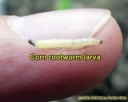
2021 marks the 25th year of commercialization of Bt corn in the United States. The first Bt corn hybrids helped producers control European corn borer, but Bt has come a long way since then. Bt hybrids are now planted on greater than 80% of U.S. corn acres. The benefits of widespread use of Bt hybrids include a reduction in corn borer in the landscape (benefitting conventional corn & vegetables too), and an overall reduction in insecticide use. Producers in SWNY are reviewing seed catalogs to purchase the best corn hybrids for their operation. Some acres in the region are continuous corn and would warrant the need for protection against certain pests such as corn rootworm. This PDF document provides information about the trade names, primary insect targets, and herbicide tolerances for each product. If you have questions about corn traits or placement, contact Josh Putman at 716-490-5572 or jap473@cornell.edu.
Dairy Market Watch - February 2021
Katelyn Walley, Business Management Specialist and Team Leader
Southwest New York Dairy, Livestock and Field Crops Program
Dairy Market Watch is an educational newsletter to keep producers informed of changing market factors affecting the dairy industry. Dairy Market Watch is published on the last Tuesday of every month, funded in part by Cornell Pro-Dairy, and is compiled by Katelyn Walley-Stoll, Farm Business Management Specialist with the Southwest New York Dairy, Livestock & Field Crops Program.
Liberty-resistant Palmer amaranth confirmed in Arkansas
Joshua Putman, Field Crops and Forage Specialist
Southwest New York Dairy, Livestock and Field Crops Program

Researchers from the University of Arkansas have identified Palmer amaranth populations that survived several applications of Liberty (glufosinate) Herbicide. Seed was collected and tested in the greenhouse showing a resistance of 16 times the typical field use rate. These findings represent the first documented case of a broadleaf resistance to Liberty Herbicide in the world. Liberty link traits are an additional tool to help corn and soybean producers control problematic weeds like Palmer amaranth, waterhemp, and marestail. Palmer amaranth is now present in 3 counties in New York State, one of which is in Southwest NY. Seed was collected from these populations in the fall of 2020 and are being tested for resistance to our commonly used herbicides. Stay tuned as we conduct research on these NY populations. Full article from the University of Arkansas can be found here.
Planting dicamba-tolerant soybeans in 2021? Options and changes to the labels
Joshua Putman, Field Crops and Forage Specialist
Southwest New York Dairy, Livestock and Field Crops Program

-Written by Mike Hunter, Field Crop Specialist with the North Country Regional Ag Team-
Are you planting dicamba-tolerant (Xtend or XtendFlex Technology) soybeans in 2021? If so, one of the tools in the weed control toolbox will be the option to use one of the three registered dicamba herbicides for use on Xtend or XtendFlex soybeans. In October 2020, the EPA approved a five year registration of XtendiMax and Engenia herbicides. It also extended the registration of Tavium herbicide. Xtendimax, Engenia and Tavium are currently the only dicamba products registered for over-the-top use in dicamba-tolerant soybeans in New York State. There are several updates and changes to the New York labels that can be found on the Cornell Field Crops Blogs. If you have questions about soybean production in 2021, contact Josh Putman at 716-490-5572 or jap473@cornell.edu
Do you have Alfalfa Snout Beetle on your farm?
Joshua Putman, Field Crops and Forage Specialist
Southwest New York Dairy, Livestock and Field Crops Program

-Article written by Dr. Elson Shields, Department of Entomology, Cornell University-
Alfalfa Snout Beetle is a significant problem in Northern NY. When alfalfa snout beetle (ASB) becomes fully established on your farm, its presence cost you $300-$600 per cow annually. The higher producing dairies are hit harder than the lower producing dairies because the higher producing dairies are more reliant on their production of high quality alfalfa and grass forage to maintain their high milk production. This is an unbelievable amount of loss caused by ASB and is ignored by many in the northern New York Agribusiness community. ASB damage is frequently missed and stand loss is often blamed on winter kill. It has not been confirmed in SWNY, but if you feel your alfalfa stands are diminishing quickly, it might be time to look deeper. The full article can be found on Field Crop News.
Ag Value Assessment Reminder
Katelyn Walley, Business Management Specialist and Team Leader
Southwest New York Dairy, Livestock and Field Crops Program
The agricultural value assessment is a program offered to eligible farms that can reduce the property taxes on land that is used for farming. The program has to be applied for annually by March 1st.
Grain Handling and Storage Safety
Joshua Putman, Field Crops and Forage Specialist
Southwest New York Dairy, Livestock and Field Crops Program
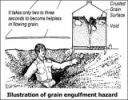
Grain facilities are locations that receive, handle, store, process, and ship bulk agricultural commodities like corn, soybeans, wheat, and oats. In New York, these facilities can be quite large and can handle large quantities of grain products. Additionally, many agricultural producers have their own grain facilities for on-farm storage. The grain handling industry is hazardous because workers can be exposed to serious and life-threatening dangers. Suffocation is the number one cause of death in grain storage bins. There are things that can be done to reduce these hazards. Information and resources can be found on the United States Department of Labor Occupational Safety and Health Administration (OSHA) website.
Dairy Market Watch - January 2021
Katelyn Walley, Business Management Specialist and Team Leader
Southwest New York Dairy, Livestock and Field Crops Program
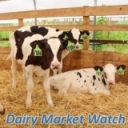
Dairy Market Watch is an educational newsletter to keep producers informed of changing market factors affecting the dairy industry. Dairy Market Watch is published on the last Tuesday of every month, funded in part by Cornell Pro-Dairy, and is compiled by Alycia Drwencke, Dairy Management Specialist with the Southwest New York Dairy, Livestock & Field Crops Program.
Soybean Cyst Nematode Keeps Spreading, Economic Losses Increasing
Joshua Putman, Field Crops and Forage Specialist
Southwest New York Dairy, Livestock and Field Crops Program
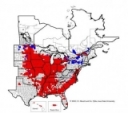
-Information provided my Julianne Johnston, The SCN Coalition-
"In just the past three years, soybean cyst nematode (SCN) has spread to 55 new U.S. counties in 11 states," says Dr. Greg Tylka, Iowa State University (ISU) nematologist and co-leader of The SCN Coalition. "SCN is now widespread in New York," says Dr. Gary Bergstrom. "Soybean growers are fortunate that in most fields where SCN has been detected, population densities are low, although it's concerning that a few counties had higher numbers." Growers are asking questions about SCN-resistant varieties, nematicide seed treatments, and soil testing for SCN. In 2020, researchers concluded that from 1996 to 2016, SCN caused yield losses of $32 billion dollars; averaging $1.5 billion annually. Research and sampling will be continued into the 2021 growing season in SWNY and throughout the state.
Meet our New Faculty Member: Dr. Louis Longchamps
Joshua Putman, Field Crops and Forage Specialist
Southwest New York Dairy, Livestock and Field Crops Program

Dr. Longchamps is an assistant professor in the Soil and Crop Science section of the School of Integrative Plant Science. His academic focus is on precision agriculture, digital agronomy, on-farm experimentation, and soil and crop improvement. He has a Ph.D. in weed science where he focused on weed distribution in corn fields in order to assess the best approach for weed spot spraying technologies. His postdoctoral studies worked to improve nutrient, water, and seed use efficiency by soil mapping and remote sensing. Dr. Longchamps experience will pair nicely with current and new faculty at Cornell University.
Sponsorship opportunity!
The SWNYDLFC program is accepting sponsors for the 2021 year. Sponsors will be advertised in electronic updates and our monthly paper mailings to reach a total of more than 500 households! More information on sponsorship can be found here or contact Kelly Bourne at klb288@cornell.edu or (585) 268-7644 ext. 10.
Herbicide Resistance Update on Marestail
Joshua Putman, Field Crops and Forage Specialist
Southwest New York Dairy, Livestock and Field Crops Program

Horticulture Weed Scientist, Dr. Lynn Sosnoskie, has been conducting some interesting research over the past few months. Extension specialists from all around the state collected and submitted weed specimens last fall for herbicide-resistance testing to better understand the best management practices for these weeds in field crops. We now have preliminary results from the first screening on horseweed aka marestail. Thirty populations have been tested so far and, it appears, that 27 out of 30 have resistance to the field-use rate of glyphosate (Roundup). Testing will continue with different chemistries so that we can provide growers with proper control measures. Join us next week for the Field Crop Series where we will cover topics on weeds, diseases, and insects in further detail.
Dairy Market Watch - December 2020
Alycia Drwencke, Dairy Management Specialist
Southwest New York Dairy, Livestock and Field Crops Program
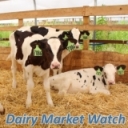
Dairy Market Watch is an educational newsletter to keep producers informed of changing market factors affecting the dairy industry. Dairy Market Watch is published on the last Tuesday of every month, funded in part by Cornell Pro-Dairy, and is compiled by Alycia Drwencke, Dairy Management Specialist with the Southwest New York Dairy, Livestock & Field Crops Program.
Results from post-emergence corn herbicide study on waterhemp
Joshua Putman, Field Crops and Forage Specialist
Southwest New York Dairy, Livestock and Field Crops Program

A summary of 6 years of field research completed in southwestern Ontario Canada found that Callisto + Atrazine, Coverage + Atrazine, Shieldex + Atrazine and Acuron Flexi, applied postemergence in corn, controlled multiple-herbicide-resistant waterhemp 91-92%; Acuron provided the best control with 96%. *Provided by Dr. Peter Sikkema*
Register for the Virtual CORE Pesticide Training in January
Joshua Putman, Field Crops and Forage Specialist
Southwest New York Dairy, Livestock and Field Crops Program

Join us for another round of CORE training to obtain your pesticide license or receive 1.75 DEC recertification credits in the CORE category. Register online for January 12th from 9am - 10:50am or January 14th from 11am - 12:50pm for only $20. We will provide an overview of the basic information involved in the pesticide application certification process and will present the basics of Integrated Pest Management (IPM) as well as general pesticide safety, regulations and pesticide resistance. *IMPORTANT NOTE* Because of COVID-19, the DEC did not require growers whose licenses expired in November of 2019 or later to renew their applicator's license in order to buy & spray restricted use materials during the 2020 growing season. That discretionary policy is no longer in effect. If your license expired between November 2019 and November 23, 2020, you must obtain the full number of recertification credits and renew your license by February 23, 2021. If your license expires after November 23, 2020, you will follow the typical DEC guidelines. Feel free to contact Josh Putman with any questions. We hope to see you there!
What's new from CALS at Cornell University?
Joshua Putman, Field Crops and Forage Specialist
Southwest New York Dairy, Livestock and Field Crops Program
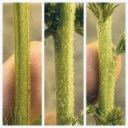
Horticulture Weed Scientist, Dr. Lynn Sosnoskie, has been conducting some interesting research over the past few months. Extension specialists from all around the state collected and submitted weed specimens for herbicide-resistance testing to better understand the best management practices for these weeds in field crops. Such species included marestail, Powell amaranth, waterhemp, and Palmer amaranth. In addition, Dr. Sosnoskie is working closely with Dr. Yu Jiang to develop a pocket Pigweed ID guide for growers. They are taking 3D images of the weeds at seedling stage all the way to flowering. This information and these tools will help growers maintain crop yields and apply the right herbicide chemistries to their fields.
Virtual CORE Pesticide Training and DEC Recertification
Joshua Putman, Field Crops and Forage Specialist
Southwest New York Dairy, Livestock and Field Crops Program

*IMPORTANT NOTE* Because of COVID-19, the DEC did not require growers whose licenses expired in November of 2019 or later to renew their applicator's license in order to buy & spray restricted use materials during the 2020 growing season. That discretionary policy is no longer in effect. If your license expired between November 2019 and November 23, 2020, you must obtain the full number of recertification credits and renew your license by February 23, 2021. If your license expires after November 23, 2020, you will follow the typical DEC guidelines.
The Results are in for SWNY! Soybean Cyst Nematode Distribution in the State
Joshua Putman, Field Crops and Forage Specialist
Southwest New York Dairy, Livestock and Field Crops Program
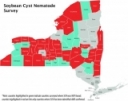
-Information prepared by Jaime Cummings, NYS Integrated Pest Management Program-
The 2020 statewide SCN survey revealed 23 NEW counties confirmed with at least one field positive for SCN. In SWNY, 3 out of 5 counties tested positive for SCN (Steuben, Allegany, and Chautauqua). This brings us to a total of 30 counties with SCN confirmations since 2016. The maps below illustrate the progress and results of our SCN testing over the past few years. Additional resources about SCN can be accessed at: https://www.thescncoalition.com/resources/tools-to-download. Also, check out these short videos titled "Let's Talk Todes" to learn more about managing soybean cyst nematode.
Dairy Market Watch - November 2020
Alycia Drwencke, Dairy Management Specialist
Southwest New York Dairy, Livestock and Field Crops Program
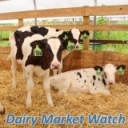
Dairy Market Watch is an educational newsletter to keep producers informed of changing market factors affecting the dairy industry. Dairy Market Watch is published on the last Tuesday of every month, funded in part by Cornell Pro-Dairy, and is compiled by Alycia Drwencke, Dairy Management Specialist with the Southwest New York Dairy, Livestock & Field Crops Program.
End-of-Season Combine Clean-out Recommendations
Joshua Putman, Field Crops and Forage Specialist
Southwest New York Dairy, Livestock and Field Crops Program

For many growers in Southwest New York, fall harvest is coming to an end. Now is the time to prepare harvest equipment for winter storage. Proper preparation reduces the likelihood of animals nesting in the equipment which can lead to electrical damage resulting in fire, improves the function and longevity of parts, and puts a closure to the 2020 growing season.
Managing Corn Rootworm and a New Control Option for New York Farmers
Joshua Putman, Field Crops and Forage Specialist
Southwest New York Dairy, Livestock and Field Crops Program
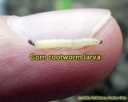
Biological Control of Corn Rootworm with Persistent Entomopathogenic Nematodes: An opportunity to try them on your farm
*Elson Shields, Entomology, Cornell University, Ithaca, NY
Corn rootworm (CRW) is the number one pest of corn in both NY and the U.S. Recent NY field data are showing that the biocontrol nematodes being released against alfalfa snout beetle are also having an impact on CRW after the field is rotated from alfalfa into corn. Research in NNY for the past 18 years has shown that a single field application of persistent biocontrol nematodes inoculates the field for multiple years and across rotations. In 75 fields following a typical alfalfa-corn rotation, not only did the biocontrol nematodes persist for multiple years at sufficient populations to suppress soil insects, but biocontrol nematode populations were higher after 4-years of corn than in the alfalfa before being rotated to corn. These results suggested the biocontrol nematodes were attacking CRW during the corn years of the rotation.
2020 Corn Silage Overview Available
Joshua Putman, Field Crops and Forage Specialist
Southwest New York Dairy, Livestock and Field Crops Program

2020 Corn Silage Overview Available
-Provided by Joe Lawrence and Allison Kerwin - PRO-DAIRY at Cornell and Department of Animal Science-
The 2020 NY & VT Corn Silage Hybrid Evaluation Program Report is now available. The growing season across much of the Northeast started out with below average temperatures, but despite the cool start, good growing conditions allowed for a timely fall harvest. Each year brings its own challenges and opportunities. It is important to evaluate the data in the context of your own farm when selecting corn hybrids. The top performing hybrid at any location may not be a good fit for another location or soil type. The PDF version can be accessed here or for additional information about hybrid performance and placement, contact Josh Putman at jap473@cornell.edu or 716-490-5572.
Important Notice for Licensed Pesticide Applicators!
Joshua Putman, Field Crops and Forage Specialist
Southwest New York Dairy, Livestock and Field Crops Program

Important Notice for Licensed Pesticide Applicators!
Because of COVID-19, the NYS DEC did not require growers whose licenses expired in November of 2019 or later to renew their applicator's license in order to buy & spray restricted use materials during the 2020 growing season. That discretionary policy is no longer in effect. If your license expired between November 2019 and Nov. 23, 2020, you must obtain the full number of recertification credits and renew your license. Starting Nov. 24, 2020, you cannot to buy or apply pesticides until your license has been renewed. The DEC is giving growers a 90-day grace period before adding penalty credits to overdue renewal applications. Growers should complete COVID-delayed license renewals by February 23, 2021. If your license expires after Nov. 23, 2020, you will follow the typical DEC renewal process.
EPA Announces 2020 Dicamba Registration Decision
Joshua Putman, Field Crops and Forage Specialist
Southwest New York Dairy, Livestock and Field Crops Program

EPA Announces 2020 Dicamba Registration Decision
October 27, 2020 — On Tuesday, U.S. Environmental Protection Agency (EPA) Administrator Andrew Wheeler announced that EPA is approving new five-year registrations for two dicamba products and extending the registration of an additional dicamba product. All three registrations include new control measures to ensure these products can be used effectively while protecting the environment, including non-target plants, animals, and other crops not tolerant to dicamba. "With today's decision, farmers now have the certainty they need to make plans for their 2021 growing season," said EPA Administrator Andrew Wheeler. "After reviewing substantial amounts of new information, conducting scientific assessments based on the best available science, and carefully considering input from stakeholders we have reached a resolution that is good for our farmers and our environment."
Dairy Market Watch - October 2020
Alycia Drwencke, Dairy Management Specialist
Southwest New York Dairy, Livestock and Field Crops Program
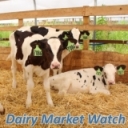
Dairy Market Watch is an educational newsletter to keep producers informed of changing market factors affecting the dairy industry. Dairy Market Watch is published on the last Tuesday of every month, funded in part by Cornell Pro-Dairy, and is compiled by Alycia Drwencke, Dairy Management Specialist with the Southwest New York Dairy, Livestock & Field Crops Program.
Corn Diseases and Mycotoxin Contamination of Corn Grain in Southwest New York
Joshua Putman, Field Crops and Forage Specialist
Southwest New York Dairy, Livestock and Field Crops Program

Mycotoxin is a general term for a poison produced by a fungus and can be toxic when inhaled, absorbed through the skin, or consumed at very low concentration levels. Corn and small grain cereals are especially prone to mycotoxin accumulation in their seed tissue. In the past, it was believed that the fungus affected grain only during the postharvest stage, particularly when grain was stored under suboptimal conditions (hot and humid/moist). Although these factors can promote fungal growth in storage, this occurs during the growing season as well.
Dairy Market Watch - September 2020
Alycia Drwencke, Dairy Management Specialist
Southwest New York Dairy, Livestock and Field Crops Program
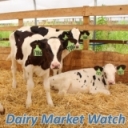
Dairy Market Watch is an educational newsletter to keep producers informed of changing market factors affecting the dairy industry. Dairy Market Watch is published on the last Tuesday of every month, funded in part by Cornell Pro-Dairy, and is compiled by Alycia Drwencke, Dairy Management Specialist with the Southwest New York Dairy, Livestock & Field Crops Program.
Preventing the Spread of Troublesome Weeds at Harvest in Southwest New York
Joshua Putman, Field Crops and Forage Specialist
Southwest New York Dairy, Livestock and Field Crops Program

-Article information adapted from PennState Extension written by Dr. John Wallace and Heidi Reed-
Resistant weeds cause significant yield loss, increased production costs, and are becoming a bigger problem every year in New York. Farmers rarely proactively manage weeds to prevent or delay selection for herbicide resistance. They usually increase the adoption of integrated weed management practices only after herbicide resistance has occurred. Our most problematic herbicide-resistant weeds, like horseweed (marestail), waterhemp, and Palmer amaranth, can easily spread from one field, or one farm, to the next, as seeds get trapped in/on tillage, planting, and harvest equipment and ride field-to-field this time of year.
Local Frost Advisories - What it Could Mean for Corn Producers in Southwest New
Joshua Putman, Field Crops and Forage Specialist
Southwest New York Dairy, Livestock and Field Crops Program

Frost can mean yield loss for crop producers, although the severity of damage varies based on crop maturity, topographical features and local climate conditions. A corn-killing freeze occurs when temperatures fall to 32 F for several hours or 28 F for a few minutes.
Second Round of Coronavirus Food Assistance Program for Farms Now Available
Alycia Drwencke, Dairy Management Specialist
Southwest New York Dairy, Livestock and Field Crops Program

The USDA's Farm Service Agency's (FSA) recently opened the second round of Coronavirus Food Assistance Program (CFAP) for agricultural businesses. If you are an agricultural producer whose operation has been affected by COVID-19, you are likely eligible for this second round of support. FSA will accept applications from September 21 - December 11, 2020 from agricultural businesses for this support. A full list of eligible commodities can be found here. For more information, or to apply, visit www.farmers.gov/cfap or contact your local FSA office. In the Southwest NY region, the county offices can be reached at: Allegany (585) 268-5133; Cattaraugus (716) 699-2375; Chautauqua (716) 664-2351; Erie (716) 652-1400; Steuben (607) 776-7398.
So, You Want to Start a Farm? Resource Directory
Katelyn Walley, Business Management Specialist and Team Leader
Southwest New York Dairy, Livestock and Field Crops Program
A comprehensive collection of resources for beginning farmers as they embark on their information searching journey to start a farm business in SWNY. Information and resources compiled by Katelyn Walley-Stoll, Farm Business Management Specialist and Team Leader, Cornell Cooperative Extension's Southwest New York Dairy, Livestock, and Field Crops Program. Funding for this project provided by the State of New York and American Farmland Trust. Updated April 2021. For more information or further questions and inquiries, call 716-640-0522.
Dairy Farm Business Summary Highlights Factors Associated with Variations in Ear
Katelyn Walley, Business Management Specialist and Team Leader
Southwest New York Dairy, Livestock and Field Crops Program
The Dairy Farm Business Summary is a free, voluntary, and confidential program offered by PRO-DAIRY and Cornell Cooperative Extension. PRO-DAIRY's Jason Karszes recently released an overview of 2019 data to highlight trends from farms divided by profitability quartiles. The average rate of return on capital without appreciation increased from 1.1 percent in 2018 to 5.6 percent in 2019. For more information, or to complete a Dairy Farm Business Summary for your own operation, contact Katelyn Walley-Stoll, Farm Business Management Specialist.
Racial Equity Tool Kit for Farmers Available
Katelyn Walley, Business Management Specialist and Team Leader
Southwest New York Dairy, Livestock and Field Crops Program
The National Young Farmers Coalition has recently compiled a Racial Equity Tool Kit designed to be a starting point for agricultural communities across the country. It aims to orient and incite members (and those in the broader agricultural industry) toward preliminary awareness and direct action. This is a great initial resource for folks to look though, and offers thoughtful ideas around partnering with BIPOC-led organizations and groups, creating a network for resource sharing, and actively practicing allyship.
Monitoring Fields for Soybean Cyst Nematode in Southwest NY
Joshua Putman, Field Crops and Forage Specialist
Southwest New York Dairy, Livestock and Field Crops Program

We need your help! Take the test. Beat the pest.
Soybean Cyst Nematode (SCN) is the most destructive pest of soybean in the United States. Yield losses in soybean due to SCN have been estimated at more than $1 billion annually in the U.S. Because the nematode can be present in fields without causing obvious aboveground symptoms, yield losses caused by SCN are often underestimated.
Consider Planting Winter Wheat After the Hessian Fly-Free Date
Joshua Putman, Field Crops and Forage Specialist
Southwest New York Dairy, Livestock and Field Crops Program

As fall approaches, growers should consider the recommended timing for planting winter wheat. For years, the standard recommendation for profitable wheat production in New York has been to plant wheat after the Hessian fly-free date. This recommendation is based on the fact that Hessian fly adults would no longer be alive as there are no remedial measures available to save an infested crop. An article prepared by Ken Wise, with the New York State Integrated Pest Management Program, discusses the recommend timing to plant wheat to avoid injury from the Hessian fly as well as a detailed description about this pest. For more information about winter cereal production, contact Josh Putman at 716-490-5572 or jap473@cornell.edu.
Deadline Approaching for USDA's Coronavirus Food Assistance Program
Katelyn Walley, Business Management Specialist and Team Leader
Southwest New York Dairy, Livestock and Field Crops Program

U.S. Department of Agriculture (USDA) Farm Service Agency (FSA) reminds farmers and ranchers that the deadline to apply for the Coronavirus Food Assistance Program (CFAP) is Sept. 11, 2020. This program provides direct relief to producers who faced price declines and additional marketing costs due to COVID-19.
Design Your Succession Plan Series Announced!
Katelyn Walley, Business Management Specialist and Team Leader
Southwest New York Dairy, Livestock and Field Crops Program

"Empowering families to get started on their succession plan."
Online Zoom Series Coming to NYS!
In NYS the program will be offered as a 4-evening remote course via Zoom in conjunction with an online learning platform to be used between meetings. The program will run from 6:30-8 p.m. October 8th, 15th 22nd and 29th.
Don't Forget to Complete the 2020 Census!
Alycia Drwencke, Dairy Management Specialist
Southwest New York Dairy, Livestock and Field Crops Program

Have you completed the 2020 Census? Completing the 2020 Census will determine where over $675 billion in federal funding is spent in states and communities for the next ten years. When filling out the Census, your personal information is kept confidential by law. Whether it's funding in communities across your state or helping determine the number of seats your state will have in the U.S. House of Representatives—every count makes an equal impact. Be sure you are counted and visit 2020Census.Gov for more information.
Corn Silage Harvest
Joshua Putman, Field Crops and Forage Specialist
Southwest New York Dairy, Livestock and Field Crops Program

Corn silage harvest is under way in New York. An article recently published by Cornell CALS PRO-DAIRY, describes the Corn Silage Processing Score (CSPS), implementation of kernel processing, and how to monitor processor performance. In a second article, they explain the effect of corn plant characteristics on corn silage processing scores. Listen to the newly published PODCAST series titled "Corn Silage Harvest Considerations." For more information, contact Field Crops Specialist Josh Putman.
2020 Changes to New York Farm Labor Laws: Recording & Presentation
New York's farm labor laws changed greatly with the 2019 Farm Laborer Fair Labor Practices Act (FLFLPA), the laws changed again this year when several amendments were included in the Budget Act in 2020. On August 17, 2020, Cornell Ag Workforce Development and Northeast Dairy Producers Association (NEDPA) recorded a webinar to help all farmers understand the changes. Find below links to a PDF of the presentation with active links and a recording of "2020 Updates to New York Farm Labor Laws."
- Link to a PDF of the meeting presentation, including links to additional information
- Link to a recording of the webinar
NYS Forage Exchange Website Announced
Joshua Putman, Field Crops and Forage Specialist
Southwest New York Dairy, Livestock and Field Crops Program

The NYS Forage Exchange provides a free system to match potential sellers and buyers of forage within New York State. Sellers can easily register within the system and then post the forage they have available to sell. Potential purchasers can browse the advertisements, and then contact the seller through email for additional information or to complete purchase arrangements.
Managing Employee Workloads
Katelyn Walley, Business Management Specialist and Team Leader
Southwest New York Dairy, Livestock and Field Crops Program
There are many hands at work on the farm, and oftentimes it can feel like there just aren't enough around! Balancing the constant demands of farming with well-balanced employee workloads can be challenging, especially in light of Farm Labor Law requirements. Cornell Pro-Dairy has a helpful tool that is useful for scheduling the activities of individuals to help avoid underemployment and employee burnout.
Dairy Farm Business Summary Progress Report Released by Cornell PRO-DAIRY
Katelyn Walley, Business Management Specialist and Team Leader
Southwest New York Dairy, Livestock and Field Crops Program
The fourth and final progress report of the Dairy Farm Business Summary has been released for 2019. As dairy businesses across the state continue to analyze their financial and business performance utilizing the Dairy Farm Business Summary and Analysis Program, updated progress of the farm reports are provided to review the changes that have occurred from 2018 to 2019.
If you are interested in participating in the Dairy Farm Business Summary Program contact Katelyn by calling 716-640-0522.
Register for the Virtual Cornell Hemp Field Day
Joshua Putman, Field Crops and Forage Specialist
Southwest New York Dairy, Livestock and Field Crops Program

Due to COVID-19 safety restrictions, this year's Hemp Field Day is being presented virtually. Pre-Register now to attend this event!
SWNY Field Crop Chronicle - 8/5/2020
Joshua Putman, Field Crops and Forage Specialist
Southwest New York Dairy, Livestock and Field Crops Program

The Southwest NY Diary, Livestock, Field Crops Program is excited to announce a new method of delivering field crop topics and information!
Dairy Market Watch - July 2020
Katelyn Walley, Business Management Specialist and Team Leader
Southwest New York Dairy, Livestock and Field Crops Program
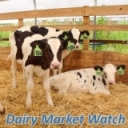
Dairy Market Watch is an educational newsletter to keep producers informed of changing market factors affecting the dairy industry. Dairy Market Watch is published on the last Tuesday of every month, funded in part by Cornell Pro-Dairy, and is compiled by Katelyn Walley-Stoll, Business Management Specialist with the Southwest New York Dairy, Livestock & Field Crops Program.
Farm Aid Northeast BIPOC Farmers Relief Fund
Katelyn Walley, Business Management Specialist and Team Leader
Southwest New York Dairy, Livestock and Field Crops Program
The Northeast BIPOC Farmer Relief Fund is now accepting applications from BIPOC (Black, Indigenous and People of Color) folks living in the Northeast who work in agriculture and have been economically impacted by the COVID crisis.
Early-Season Corn Disease: Northern Corn Leaf Blight
Joshua Putman, Field Crops and Forage Specialist
Southwest New York Dairy, Livestock and Field Crops Program

In 2019, northern corn leaf blight (NCLB) appeared throughout the Southwest New York region. Weather conditions in 2020 are favorable and might lead to disease infestations in SWNY.
Don't Miss Out On The Next CORE Pesticide Training July 21st, 6PM-7:50PM!
Joshua Putman, Field Crops and Forage Specialist
Southwest New York Dairy, Livestock and Field Crops Program

Our first online CORE pesticide training was a huge success with great participation from the group. The SWNY Dairy, Livestock, and Field Crops team is hosting a second training this coming Tuesday, July 21, from 6-7:50PM.
Heat-Stress and Lack of Moisture on Corn and Soybeans in SWNY
Joshua Putman, Field Crops and Forage Specialist
Southwest New York Dairy, Livestock and Field Crops Program

Last week, SWNY was experiencing severe heat as well as symptoms of drought stress and seen in many crops. Corn leaves were rolling, soybean leaves were flipped, leaf tissue was turning grey, and there was no sight of rain.
Managing the Heat is Important for People, too!
Katelyn Walley, Business Management Specialist and Team Leader
Southwest New York Dairy, Livestock and Field Crops Program
While we often think about our livestock's health, our corn yields decreasing, and our equipment overheating in times of drought and high heat, it's important to remember that people are susceptible to heat stress, too!
Spreading Dogbane - A problematic weed in SWNY
Joshua Putman, Field Crops and Forage Specialist
Southwest New York Dairy, Livestock and Field Crops Program

Josh Putman, Field Crops Specialist with the SWNY Dairy, Livestock & Field Crops program recently ran across a plant in a hay field that had not been worked for a few years and was very difficult to identify. Pictures of the weed were sent to Cornell's Weed Ecology and Management Laboratory and correctly identified. Spreading dogbane, Apocynum androsaemifolium, is in the same family as milkweeds and swallowworts, and the same genus as hemp dogbane. This perennial plant is found in open, dry areas and in disturbed habitats throughout New York and most of the US and Canada.
Dicamba Notice to Users, Distributors and Sellers - June 29, 2020
Joshua Putman, Field Crops and Forage Specialist
Southwest New York Dairy, Livestock and Field Crops Program

On June 3, 2020, the United States Court of Appeals for the Ninth Circuit vacated EPA's registration of three products containing the active ingredient dicamba, which effectively cancelled their federal registrations. The three products are: Xtendimax with Vaporgrip Technology, Engenia, and FeXapan.
On June 8, 2020, in response to the Court's decision, EPA issued a Cancellation Order for these three products. In light of the Court's decision associated with these registrations and the provisions of EPA's Cancellation Order to implement that decision, DEC is taking these actions:
1) Registrations - The registrations of the three products will be cancelled as of July 31, 2020 in accordance with the provisions of ECL Section 33-0713. Thirty days' notice will be provided to the registrants of these products.
2) Distribution or Sale - Distribution or sale of existing stocks of the three products shall be limited as follows:
- Distribution or sale by registrants is prohibited immediately, except for distribution for the purposes of proper disposal.
- Distribution or sale of products that are already in the possession of someone other than the registrant is permitted only for disposal or to facilitate return to the registrant or a registered establishment.
- Distribution or sale by commercial applicators is permitted to facilitate use no later than July 31, 2020.
3) Use - All use, including storage of open containers, is prohibited after July 31, 2020.
Questions about dicamba may be directed to pesticidecompliance@dec.ny.gov or ppr@dec.ny.gov or by calling 518-402-8727.
Identifying Risk is the First Step to Managing It
Katelyn Walley, Business Management Specialist and Team Leader
Southwest New York Dairy, Livestock and Field Crops Program
The South Central NY Dairy & Field Crops Team recently shared information on identifying risk on the farm - the first step to managing it! Many farms have taken a closer look at their risk management efforts in light of the COVID-19 pandemic and its market disruptions. Risk Management involves looking at the areas of your farm that include: Production, Marketing, Financial, Legal, and Human. For more help on diagnosing your farm's risk management areas, read this article from Mary Kate and connect with Katelyn Walley-Stoll, Farm Business Management Specialist.
Don't Forget Your Residential Agricultural Discount Application
Katelyn Walley, Business Management Specialist and Team Leader
Southwest New York Dairy, Livestock and Field Crops Program
Farms have until July 1st to apply or reapply for the Residential Agricultural Discount.
Farm Safety Plans
Katelyn Walley, Business Management Specialist and Team Leader
Southwest New York Dairy, Livestock and Field Crops Program
One More Reminder, because it's REALLY IMPORTANT, Farm Safety Plan is REQUIRED
In order to protect the health and safety of your employees & farm, and from a legal risk management/liability perspective, be sure to complete your Farm Safety Plan ASAP. I know the sun is shining, the cows need to be milked, and sitting in front of a computer is the last thing you want to do right now - BUT this is a requirement regardless of your farm's size, employee numbers, production area, etc.
Black Cutworm and True Armyworm Moth Captures and Weed Pressure in SWNY
Joshua Putman, Field Crops and Forage Specialist
Southwest New York Dairy, Livestock and Field Crops Program

This week, Field Crops Specialist, Josh Putman, with the Southwest NY Dairy, Livestock, and Field Crops program scouted traps and fields throughout the region. In Avoca, NY, both moth species were present having 7 cutworm and 10 armyworm; not much larvae feeding was found. In Springville, NY 3 black cutworm and 3 armyworm were collected; we now have evidence of cutworm feeding on corn plants. According to Dr. Mike Stanyard of the NWNY Dairy, Livestock, and Field Crops team, it is important to be out scouting your fields now for pest damage and economic threshold that may require management. In addition, with the warm temperatures and increased day length, we are seeing an increase of weed pressure in our field crop production systems. Summer annual weeds compete for sunlight, nutrients and water. Don't let these pests rob your crop yields!
CFAP Applications Still Accepted - Call Your Local FSA Office Today!
Katelyn Walley, Business Management Specialist and Team Leader
Southwest New York Dairy, Livestock and Field Crops Program

The Coronavirus Food Assistance Program is still accepting applications from qualifying agricultural producers. Be sure to give you local office a call ASAP!
Allegany County: 585-268-5133 · Cattaraugus County: 716-699-2375 · Chautauqua County: 716-664-2351 · Erie County: 716-652-1400 · Steuben County: 607-776-7398
Cutworm and Armyworm Moth Captures Increase Significantly in Southwest NY
Joshua Putman, Field Crops and Forage Specialist
Southwest New York Dairy, Livestock and Field Crops Program

Field Crops Specialist, Josh Putman, with the Southwest NY Dairy, Livestock, and Field Crops program scouted traps and fields throughout the region. This week, moth captures increased significantly at both locations in the region. In Avoca, NY, both moth species were present having 13 cutworm and 11 armyworm. Higher numbers were captured in Springville, NY with 21 black cutworm and 13 armyworm collected; no evident feeding from larvae was present in corn fields that were emerged. Field Crops Specialists from the Northwest NY Program are finding much higher numbers of both pests in their traps this week. Correct identification of the larvae and larvae feeding can be difficult; contact your local extension specialist for proper identification and management.
Dairy Market Watch - May 2020
Katelyn Walley, Business Management Specialist and Team Leader
Southwest New York Dairy, Livestock and Field Crops Program
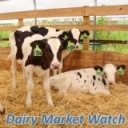
Dairy Market Watch is an educational newsletter to keep producers informed of changing market factors affecting the dairy industry. Dairy Market Watch is published on the last Tuesday of every month, funded in part by Cornell Pro-Dairy, and is compiled by Katelyn Walley-Stoll, Business Management Specialist with the Southwest New York Dairy, Livestock & Field Crops Program.
Monitoring Your Alfalfa Fields for Weevil
Joshua Putman, Field Crops and Forage Specialist
Southwest New York Dairy, Livestock and Field Crops Program
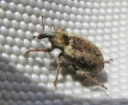
Despite this cold, wet spring, which has delayed planting and other farming efforts across NY, our pests and diseases continue to rear their ugly heads. This serves as a reminder that we need to continue to be vigilant with our scouting efforts for early detection of pests to make sound management decisions.
COVID-19: Farm Leadership Must Persevere to Victory
Katelyn Walley, Business Management Specialist and Team Leader
Southwest New York Dairy, Livestock and Field Crops Program

While some regions across the state are beginning their phased re-opening, we have to remember that we must continue to prioritize farm worker health and safety. Now is not the time to relax precautions. Rich Stup of Cornell's Agricultural Workforce Development program shares strategies for continuing to remain vigilant that includes assigning cleaning details, developing SOP's, and transparent (and socially distant) communication.
Soil Temperatures and Insect Captures Remain Low in Southwest New York
Joshua Putman, Field Crops and Forage Specialist
Southwest New York Dairy, Livestock and Field Crops Program

As daytime temperatures struggle to get above 50 F and nighttime temperatures falling below freezing, soils in Southwest NY are warming at a slow pace. Average soil temperatures across the SWNY region ranged from 42-56 F. Black cutworm and true armyworm moth counts also remain low as Avoca, NY had 0 black cutworm and 2 armyworm. Springville, NY location had 2 black cutworm and 3 armyworm moths in the traps. Weekly monitoring of these pests will continue and as temperatures continue to rise, we need to be scouting our fields for potential larvae. Contact Field Crop Specialist, Josh Putman, with the SWNY Dairy, Livestock, and Field Crops team for correct pest identification. For additional information, see the Crop Alert provided by the NWNY Diary, Livestock and Field Crops team.
Caught! Black Cutworm and True Armyworm Moths Making Their Way into Southwest Ne
Joshua Putman, Field Crops and Forage Specialist
Southwest New York Dairy, Livestock and Field Crops Program

Black cutworm and True armyworm are problematic insects that can significantly cause damage here in New York. We are working to monitor these moths as they enter the region.
Paycheck Protection Program & Economic Injury Disaster Loan
Katelyn Walley, Business Management Specialist and Team Leader
Southwest New York Dairy, Livestock and Field Crops Program
Elizabeth Higgins (ENY Commercial Horticulture Program),Nicole Tommell (CNY Dairy, Livestock, and Field Crops Program), & Myron Thurston (CCE-Madison) share more information about federal programs now available to farmers.
Cornell Pesticide Management Education Program
Joshua Putman, Field Crops and Forage Specialist
Southwest New York Dairy, Livestock and Field Crops Program
Along with the increased use of disinfectants and sanitizers during the COVID-19 pandemic,
there has been an increase in adverse health effects from the misuse of these
products. There have also been several fraudulent products produced during this
time that potential applicators should be made aware of.
Dairy Market Watch - April 2020
Katelyn Walley, Business Management Specialist and Team Leader
Southwest New York Dairy, Livestock and Field Crops Program
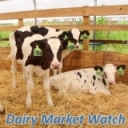
Dairy Market Watch is an educational newsletter to keep producers informed of changing market factors affecting the dairy industry. Dairy Market Watch is published on the last Tuesday of every month, funded in part by Cornell Pro-Dairy, and is compiled by Katelyn Walley-Stoll, Business Management Specialist with the Southwest New York Dairy, Livestock & Field Crops Program.
Creating a Dairy Farm Operating Plan
Alycia Drwencke, Dairy Management Specialist
Southwest New York Dairy, Livestock and Field Crops Program

Paul Mitchell, ASHLEY A OLSON, Carl Duley, RYAN A STERRY and JEROME R CLARK at the University of Wisconsin-Madison have put together an example template to create a dairy farm operating plan in these uncertain times.
Traps being set in Southwest New York
Joshua Putman, Field Crops and Forage Specialist
Southwest New York Dairy, Livestock and Field Crops Program

Black cutworm and True armyworm traps are being set throughout Southwest NY to monitor moth flights from the south as well as the west. These can be very problematic to field crop and hay producers and it is important to monitor your fields before they cause economic damage. Recently, other Extension Specialists have caught True armyworm moths and we will continue to monitor the traps that are being placed in SWNY.
Diet and Management Considerations for Emergencies: Reducing Milk Flow
Alycia Drwencke, Dairy Management Specialist
Southwest New York Dairy, Livestock and Field Crops Program

Mike Van Amburgh, Tom Overton, and Julio Giordano, Department of Animal Science faculty at Cornell University have put together an article on Diet and Management Considerations for Emergencies: Reducing Milk Flow Without Harming Cows and Threatening Future Production. With cooperatives encourage reduced milk production, these are important aspects to consider.
Financial Considerations - Are You Milking Some Cows You Shouldn't Be?

Joan Sinclair Petzen, John Hanchar, both NWNY Dairy, Livestock, and Field Crops Team, and Andrew Novakovic, Cornell University, have put together some financial considerations for the number of cows you are milking and managing during these challenging times.
Face Covering Required for Essential Workers With Direct Public Contact
Katelyn Walley, Business Management Specialist and Team Leader
Southwest New York Dairy, Livestock and Field Crops Program

"For all essential businesses or entities, any employees who are present in the workplace shall be provided and shall wear face coverings when in direct contact with customers or members of the public. Businesses must provide, at their expense, such face coverings for their employees. This provision may be enforced by local governments or local law enforcement as if it were an order pursuant to section 12 or 12-b of the Public Health Law. This requirement shall be effective Wednesday, April 15 at 8 p.m."
Stressed out? Think like a SEAL
Katelyn Walley, Business Management Specialist and Team Leader
Southwest New York Dairy, Livestock and Field Crops Program
Everyone knows that the U.S. Navy SEALS are an elite fighting force, and recognized the world over for their exploits. The training they undergo is rigorous and demanding. Given recent events, Tim Terry of Harvest NY has shared a little psychological boost. So here are the Big Four so you, too, can think like a SEAL.
What's With All of the Milk Dumping?
Katelyn Walley, Business Management Specialist and Team Leader
Southwest New York Dairy, Livestock and Field Crops Program

The Southwest New York Dairy, Livestock, and Field Crops Program would like to reassure the region's consumers that there is no reason for concern regarding the safety of our food system or threats of food shortages. This has been supported by the Institute for Food Safety at Cornell University. Farms nationwide, including dairies, have been deemed essential businesses and are still working daily to produce safe, wholesome foods that families can enjoy - even during this uncertain time. By Katelyn Walley-Stoll and Alycia Drwencke.
Attention Crop Farmers: Fertilizer Value of Milk
Katelyn Walley, Business Management Specialist and Team Leader
Southwest New York Dairy, Livestock and Field Crops Program
Significant quantities of surplus milk from NY's dairy industry may have to be land applied in the coming weeks due to unprecedented market disruptions created by the COVID-19 emergency. Karl Czymmek of Cornell PRO-DAIRY shares helpful information for crop farmers.
Fertilizer Value of Milk and Feeding Milk
Alycia Drwencke, Dairy Management Specialist
Southwest New York Dairy, Livestock and Field Crops Program

With many farms being faced with the unfortunate situation of dumping their milk, some farms are considering the value of this milk for fertilizer and as feed for calves and cows. Karl Czymmek, Cornell PRO-DAIRY Specialist discusses the nutrient value of milk as fertilizer, while Maggie Gilles, Associate Editor for Hoard's Dairyman, shares resources on feeding milk to the herd.
How warm are your soils? Things to consider prior to planting
Joshua Putman, Field Crops and Forage Specialist
Southwest New York Dairy, Livestock and Field Crops Program
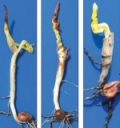
Selection of optimal planting date is one of the most critical factors in the decision making process for producers. When making this decision, producers should consider soil temperatures rather than just calendar dates. How warm are your soils?
Spring 2020 - Contingency Planning from Joe Lawrence, Cornell PRO-DAIRY
Katelyn Walley, Business Management Specialist and Team Leader
Southwest New York Dairy, Livestock and Field Crops Program
We face unprecedented uncertainty in preparing for the 2020 field season. While spring is an
exciting time, it is also a time that strains available resources; equipment, labor, hours in a day. This year, the potential for health issues and the resulting impacts on labor availability could further stress these already limited resources.
Management Strategies During COVID-19 from PRO-DAIRY
Alycia Drwencke, Dairy Management Specialist
Southwest New York Dairy, Livestock and Field Crops Program

Several resources have been put together by the Cornell PRO-DAIRY team and Cornell CALS Faculty to cover management and financial considerations for dairy farms during COVID-19.
NYS DEC delays enforcement of the pesticide certification period
Joshua Putman, Field Crops and Forage Specialist
Southwest New York Dairy, Livestock and Field Crops Program

Pesticide Certification and Business Registration during Pause-NY: DEC is taking the following actions to temporarily allow regulatory flexibility and continued pesticide application and business operations during Pause-NY due to the unique conditions facing New York and the entire nation.
Reliable Resources for Spanish- & English-Speaking Farmworkers about COVID-19

Libby Eiholzer, CCE Northwest NY Dairy, Livestock & Field Crops Team, and Richard Stup, Cornell Agricultural Workforce Development have compiled reliable resources for farm workers on COVID-19 in both English and Spanish.
From our Team to Yours: COVID-19 Resources for Dairy Farmers
Alycia Drwencke, Dairy Management Specialist
Southwest New York Dairy, Livestock and Field Crops Program

The South Central NY Dairy and Field Crops Team has compiled a list of articles that we think may be useful to dairy producers and their service providers as we all navigate the COVID-19 situation. Please stay safe and reach out to our team if you have questions or need help finding information. We are here to help with tools and resources to support all of the normal day-to-day dairy, livestock, and field crop management considerations, in addition to emerging topics related to COVID-19. For additional resources or information, please reach out to Alycia Drwencke, Dairy Management Specialist, or Katelyn Walley-Stoll, Farm Business Management Specialist.
Scout your hay fields to assess winter annual weed pressure
Joshua Putman, Field Crops and Forage Specialist
Southwest New York Dairy, Livestock and Field Crops Program

Alfalfa and grass hay stands are greening up across Southwest NY and all across Western NY over the last 10 days. Recently, Field Crops Specialist Josh Putman with the SWNY Dairy, Livestock, and Field Crops Team, has been out monitoring fields for potentially damaging pests in hay production fields. Winter annual weeds are being seen in high numbers and even more so in older hay stands.
Vendor Finance in the Northeast Dairy Industry
Katelyn Walley, Business Management Specialist and Team Leader
Southwest New York Dairy, Livestock and Field Crops Program

Originally published in farmdocDAILY by Chad Fiechter and Jennifer Ifft. Many dairy farms report difficult accessing credit when milk prices are low and use of accounts payable with feed mills as management strategy for low margin periods. Through cooperation with NEAFA, we conducted a survey of feed manufacturers, ultimately collecting details of 5 years of accounts receivable data from firms that represent over 70% of the industry by volume. We found that average delinquencies (share of accounts receivable that are overdue) held by NE feed manufacturers have more than doubled since 2014 to over 10%. The magnitude of this "effective credit" is similar to a large regional community bank. This corresponds with a long period of negative profit margins for many dairy farms. We confirm this countercyclical relationship with Cornell Dairy Farm Business Summary data from 1993. We found that dairy farms have a large increase in accounts payable when profit margins are low, especially during the recent/ongoing downturn. Use of accounts payable as "effective credit" is much more common among highly leveraged farms, suggesting higher than average risk for feed manufacturers.
Dairy Farm Risk Management Options April 2020
Katelyn Walley, Business Management Specialist and Team Leader
Southwest New York Dairy, Livestock and Field Crops Program
Christopher Wolf, Cornell University, shares risk management options for dairy farms to consider to reduce the impact of milk price decreases.
Do's and Don'ts for Dairy Farmers When Facing Financial Difficulty
Katelyn Walley, Business Management Specialist and Team Leader
Southwest New York Dairy, Livestock and Field Crops Program

A quick outline for dairy farmers to use in times of financial uncertainty, prepared by Wayne Knoblauch, Cornell University, and Jason Karszes, PRO-DAIRY.
CARES Act's Emergency Resources for Farms: Paycheck Protection Loan Program
Katelyn Walley, Business Management Specialist and Team Leader
Southwest New York Dairy, Livestock and Field Crops Program
Financial Assistance for Farms Facing the COVID-19 Crisis
Katelyn Walley, Business Management Specialist and Team Leader
Southwest New York Dairy, Livestock and Field Crops Program

Farm businesses and operations have been deemed essential and will continue to remain in operation producing high-quality, safe food products for consumers all across the world. However, with market disruptions, employees' family obligations, and potentially catastrophic commodity prices, farm profitability uncertainties are an added source of concern.
Note from ADA North East Regarding Milk Sale Limits at Retail Locations
Katelyn Walley, Business Management Specialist and Team Leader
Southwest New York Dairy, Livestock and Field Crops Program

Are you still seeing grocery stores limiting dairy purchases? Let the American Dairy Association North East know!
The State of Dairy Markets
Katelyn Walley, Business Management Specialist and Team Leader
Southwest New York Dairy, Livestock and Field Crops Program

A message from Katelyn Walley-Stoll, Farm Business Management Specialist with Cornell University Cooperative Extension's Southwest New York Dairy, Livestock, and Field Crops Program:
A lot of people have been asking me about all of the photos and videos going around of milk being dumped. This is a long, but explanatory article from two industry experts, with some tips and things for farms to think about in these uncertain times. At the end of the day, remember that our food supply is safe, you will still be able to buy milk, and farmers keep farming. Keep our farmer's in your thoughts and buy a couple extra blocks of American Made cheese or tubs of ice cream. Don't forget, I put together a monthly report called Dairy Market Watch that is an educational newsletter to keep producers informed of changing market factors affecting the dairy industry. To subscribe, click here and enter your contact information. Stay safe - Katelyn.
Biosecurity for People: 7 Steps to Protect Farm Workers from COVID-19

Mary Kate Wheeler, Farm Business Management Specialist with the South Central NY Dairy & Field Crops Team, shares 7 tips for protecting your farm employees from COVID-19 in her latest blog post.
Traps being set for black cutworm and armyworm - Watch your fields!
Joshua Putman, Field Crops and Forage Specialist
Southwest New York Dairy, Livestock and Field Crops Program
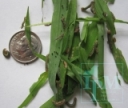
True armyworm (aka Common armyworm) is a problem in agronomic and turf production systems here in New York. They do not overwinter in New York, but fly north from states to our south in the spring. Armyworm moth migrations are somewhat sporadic, cyclic from year to year, and difficult to predict. We are gearing up to set traps throughout the region to help growers predict the potential risk of armyworm infestation in wheat and corn this spring.
Statewide herbicide resistance screening to start in 2020: Help us help you!
Joshua Putman, Field Crops and Forage Specialist
Southwest New York Dairy, Livestock and Field Crops Program

Herbicide-resistant weeds are an increasing issue in the United States. Here in NY, we are finding some very problematic species that can cause issues with your farming operation. This is one way Weed Scientists here in the state are looking to monitor these pests.
Still looking for DEC recertification credits? Here is an opportunity for you!
Joshua Putman, Field Crops and Forage Specialist
Southwest New York Dairy, Livestock and Field Crops Program

Are you interested in obtaining recertification credits for your applicator license? Here's how to obtain points!
Dairy Market Watch - March 2020
Katelyn Walley, Business Management Specialist and Team Leader
Southwest New York Dairy, Livestock and Field Crops Program
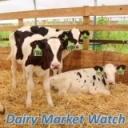
Dairy Market Watch is an educational newsletter to keep producers informed of changing market factors affecting the dairy industry. Dairy Market Watch is published on the last Tuesday of every month, funded in part by Cornell Pro-Dairy, and is compiled by Katelyn Walley-Stoll, Business Management Specialist with the Southwest New York Dairy, Livestock & Field Crops Program.
Institute for Food Safety at Cornell University offers Expertise
Katelyn Walley, Business Management Specialist and Team Leader
Southwest New York Dairy, Livestock and Field Crops Program
COVID-19 is already changing the way we interact with and produce food. As we each look to control the spread and impact of COVID-19, there are many questions around the risks associated with food production and to our employees to ensure that a safe and robust food supply is maintained for the public.
NY FarmNet Continues to Offer Free Services - Call 1-800-547-3276
Katelyn Walley, Business Management Specialist and Team Leader
Southwest New York Dairy, Livestock and Field Crops Program
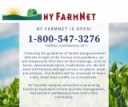
NY FarmNet is continuing to support our agricultural producers through free and confidential consultations.
Note from Cornell Small Farms in the Face of Crisis
Katelyn Walley, Business Management Specialist and Team Leader
Southwest New York Dairy, Livestock and Field Crops Program
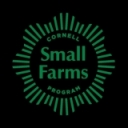
Anu Rangarajan from the Cornell Small Farms Program shares information and helpful suggestions for farms in the face of our current situation.
Novel Coronavirus Prevention & Control for Farms
Katelyn Walley, Business Management Specialist and Team Leader
Southwest New York Dairy, Livestock and Field Crops Program

Richard Stup of Cornell Cooperative Extension's Agricultural Workforce Development program shares tips for farm employers in light of the COVID-19 crisis. Originally published here.
Dairy Market Watch - February 2020
Katelyn Walley, Business Management Specialist and Team Leader
Southwest New York Dairy, Livestock and Field Crops Program
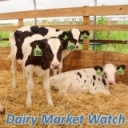
February 2020 edition of Dairy Market Watch, an educational newsletter to keep producers informed of changing market factors affecting the dairy industry.
CORE Pesticide Training & NYSDEC Exam 2020
Katelyn Walley, Business Management Specialist and Team Leader
Southwest New York Dairy, Livestock and Field Crops Program

3.0 pesticide recertification credits in the CORE category have been officially approved for this event. Attend a CORE Pesticide training and register to take your NYSDEC Exam. Participants looking to receive their applicators license must have experience working on their own farm, or through employment on another farm. March 26th - Jamestown. April 2nd - Bath
You Don't Say...By Timothy X. Terry, Harvest NY

Learn more about hiring a contractor for your farm project from Timothy X. Terry of Cornell Cooperative Extension's Harvest NY program.
2020 SWNYDLFC Winter Update Series
Katelyn Walley, Business Management Specialist and Team Leader
Southwest New York Dairy, Livestock and Field Crops Program
Dairy Market Watch - January 2020
Katelyn Walley, Business Management Specialist and Team Leader
Southwest New York Dairy, Livestock and Field Crops Program
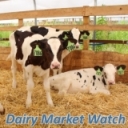
January 2020 edition of Dairy Market Watch, an educational newsletter to keep producers informed of changing market factors affecting the dairy industry.
An Update from SWNYDLFC
Katelyn Walley, Business Management Specialist and Team Leader
Southwest New York Dairy, Livestock and Field Crops Program

Since July 1st, 2019, our new program has been busy with on-boarding, needs assessment, educational programming, and getting the chance to meet some of our region's amazing farmers. We've hired four specialists that are on-board and ready to hit the ground running in the specialty areas of Farm Business Management, Field Crops, Dairy Management, and Livestock. We're working with each of our five county associations' Executive Directors, Board of Directors, Program Committees, and Agriculture Program Staff to get to know the region and its programming needs while introducing this collaborative model of dairy, livestock, and field crops outreach.
Dairy Market Watch - December 2019
Katelyn Walley, Business Management Specialist and Team Leader
Southwest New York Dairy, Livestock and Field Crops Program
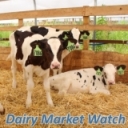
December 2019 edition of Dairy Market Watch, an educational newsletter to keep producers informed of changing market factors affecting the dairy industry.
Dairy Market Watch - November 2019
Katelyn Walley, Business Management Specialist and Team Leader
Southwest New York Dairy, Livestock and Field Crops Program
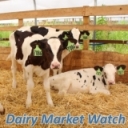
November 2019 edition of Dairy Market Watch, an educational newsletter to keep producers informed of changing market factors affecting the dairy industry.
Dairy Market Watch - October 2019
Katelyn Walley, Business Management Specialist and Team Leader
Southwest New York Dairy, Livestock and Field Crops Program
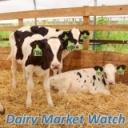
October 2019 edition of Dairy Market Watch, an educational newsletter to keep producers informed of changing market factors affecting the dairy industry.
Dairy Market Watch - September 2019
Katelyn Walley, Business Management Specialist and Team Leader
Southwest New York Dairy, Livestock and Field Crops Program
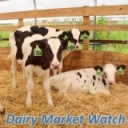
September 2019 edition of Dairy Market Watch, an educational newsletter to keep producers informed of changing market factors affecting the dairy industry.
Dairy Market Watch - August 2019
Katelyn Walley, Business Management Specialist and Team Leader
Southwest New York Dairy, Livestock and Field Crops Program
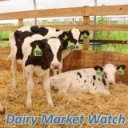
Dairy Market Watch is an educational newsletter to keep producers informed of changing market factors affecting the dairy industry.
Beef Farm Account Book Available!
Katelyn Walley, Business Management Specialist and Team Leader
Southwest New York Dairy, Livestock and Field Crops Program

The Cornell Beef Farm Account Book is once again available. This accounting record book is designed specifically for beef producers. A complete and accurate set of financial records helps producers develop accurate tax returns but as important gives them the data to analyze their business.
Confidently Hosting a Farm Tour - Part One - What's Your "Why Bother" ?
Katelyn Walley, Business Management Specialist and Team Leader
Southwest New York Dairy, Livestock and Field Crops Program

We've been approached by many agricultural producers who are interested in hosting a farm tour, but are unsure of where to start. Our hope is that this article series will help our agricultural community share the stories of their farms, and feel confident while doing so.
Economics of Producing Industrial Hemp, Costs of Production, NYS, 2017
John Hanchar, Farm Business Management Specialist
Northwest New York Dairy, Livestock & Field Crops
Costs of Production Analysis, Industrial Hemp, NYS, 2017
- Variable costs of production estimates for 2017 are $282, $268, and $269 per acre for industrial hemp for fiber only, fiber and seed, and seed only, respectively
- Fixed costs of production estimates for 2017 are $145, $183, and $160 per acre for industrial hemp for fiber only, fiber and seed, and seed only, respectively
- Total costs of production estimates for 2017 are $427, $451, and $429 per acre for industrial hemp for fiber only, fiber and seed, and seed only, respectively
Upcoming Events
Boots in the Barn: Cornell Dairy Research Updates
January 13, 2026
January 20, 2026
January 27, 2026
February 3, 2026
February 10, 2026
February 17, 2026
February 24, 2026
Deerworm and Flukes in Small Ruminants Webinar
February 25, 2026 : Deerworm and Flukes in Small Ruminants Webinar
NYSDEC How to Get Certified Course
March 3, 2026 : NYSDEC How to Get Certified Course
Ellicottville, NY
Announcements
Cows, Crops & Critters Newsletter Sponsorship
TRYING TO REACH GROWERS AND AGRIBUSINESSES IN OUR SOUTHWEST REGION OF NEW YORK?Weekly Email Update: Shared with 625+ households who have signed up with our program.
Monthly Paper Mailer: To reach our stakeholders and farmers who lack internet access, we send out a monthly mailer where your company's logo and contact information would be featured with a mailing list of 330+ households.
If you sponsor our weekly and monthly publications you reach approximately 955 households.






